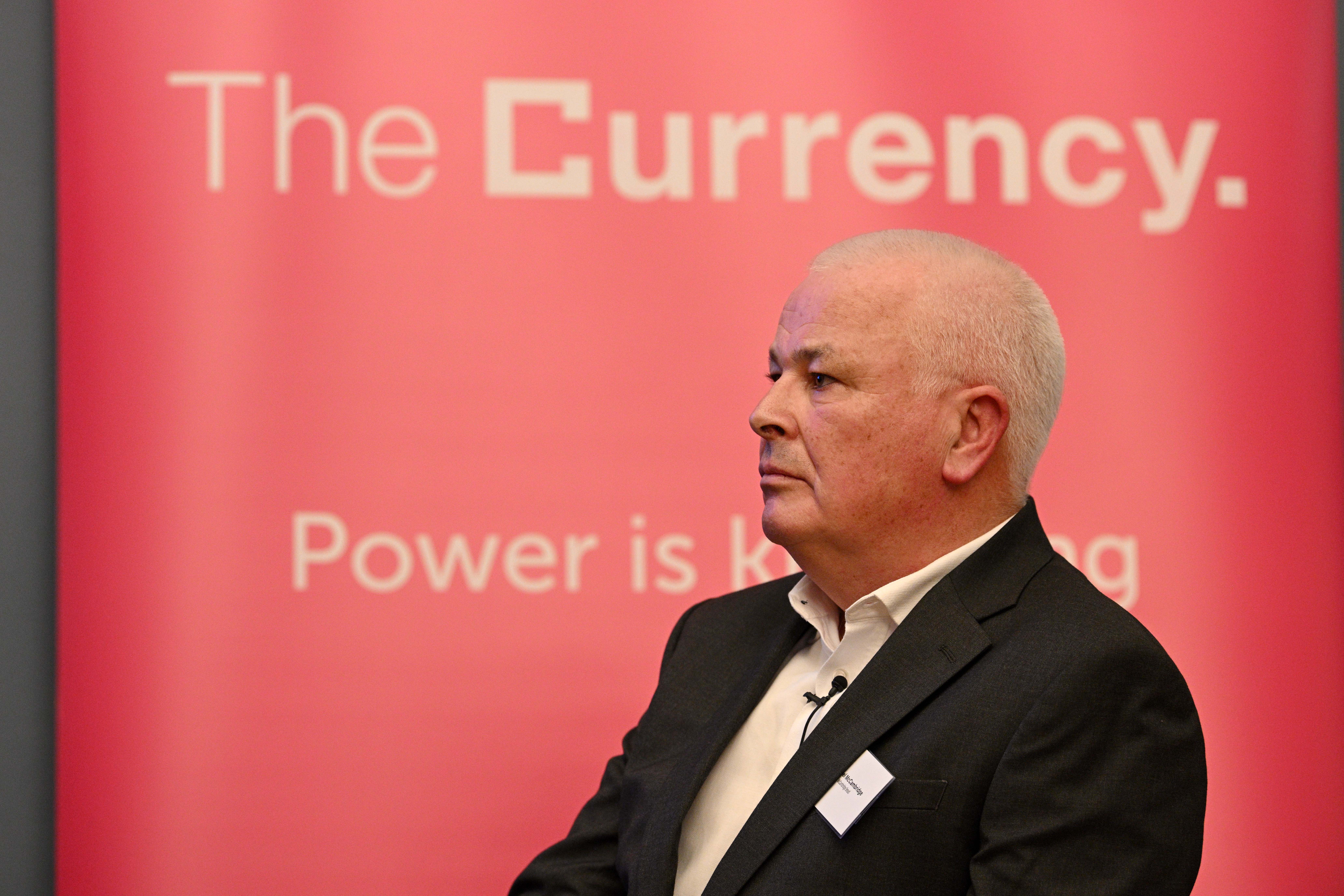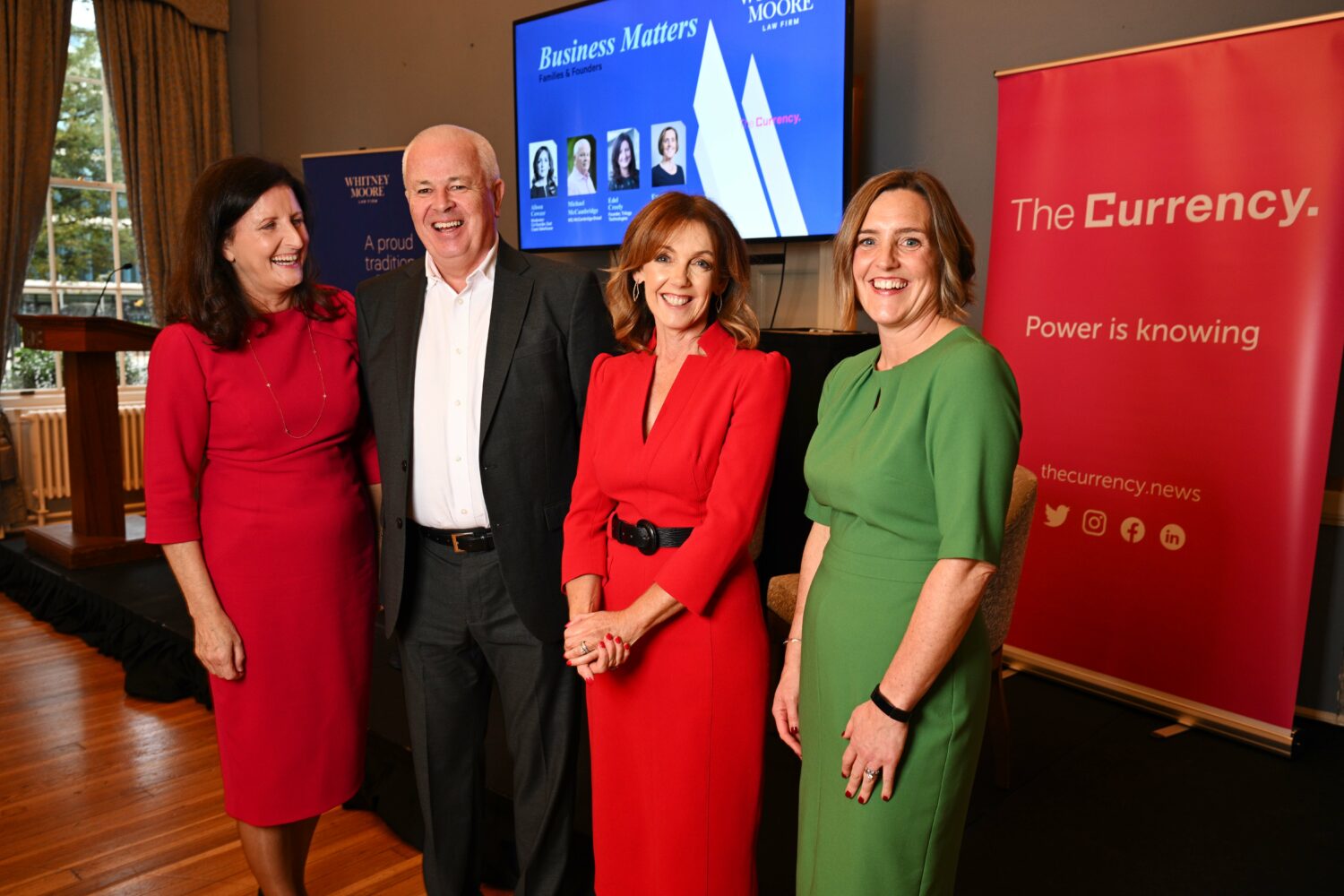Edel Creely, the co-founder of Trilogy Technologies, defines the difference between working for others and being a founder as a “weight shift”. Whether working for yourself or leading a family business, there is a transfer of responsibility, increased pressure, and a greater focus on decision-making.
In 2009, Creely came to a point in her life when she sought out this difference. Her children were old enough and the time had come for her to move away from working from others.
“We started at the end of 2009 believing that Managed Service Provision (MSP) was going to be the way of the future in terms of IT support for companies. So while it was a growing area in the US, we built our business to be an MSP before MSPs were that well understood,” Creely said.
“We started small by buying a very small company which already had a tiny team and few customers in place so the roots of it were already there. The first thing we did was we rebranded; we created a message differentiating ourselves and then looking at other ways we could differentiate our offering in the market to stand out against other companies who were larger and more well-established than us at that point.”
Over a decade, Creely grew Trilogy into one of the largest IT service providers in the country, and looking back now she understands it was the people she recruited in those initial years that were of the utmost importance to the success of the company.
“Surrounding yourself with the best people, particularly the first 100 people in your company, is critical. They are all critical to taking the culture you are building and driving that right throughout the business as you grow. Sustaining that is a hugely important part of the business,” she said.
Trilogy Technologies was acquired by Arkphire in 2019 for an undisclosed sum and for Creely that meant “coming out the other side” of being a founder and feeling the weight she had carried while leading a company from concept to scale lift.
Families and founders
Creely was speaking to a packed-out room at the recent ‘Business Matters: Families & Founders’ event, organised in partnership between The Currency and Whitney Moore, a full service law firm and sole Irish member of the Mertias global network of independent law firms. The event marked the conclusion of the Family Matters podcast series. The podcast series is available to listen to in full at the bottom of this page, with guests including Vincent Carton of Manor Farm, Brian Donaldson, chief executive of Maxol, Rachel Doyle, founder of the Arboretum garden centres and John McGrane of the Family Business Network.

For this live event held in the RDS, Creely was joined on a panel with Michael McCambridge, the executive chairman of McCambridge Bread, Alison Cowzer, the host of the Family Matters podcasts, and Emma Richmond, who currently leads employment and business immigration for Whitney Moore.
At the event, Whitney Moore’s outgoing managing partner John Lynch, announced that Richmond and Cillian Balfe, currently the law firm’s head of corporate, would succeed him in the role. This will be the first time the firm has joint-managing partners, and is a sign of the progressive nature of the firm, according to Lynch.
Both Richmond and Balfe appeared on the Family Matters podcast previously, and it is worth listening back to their episode for insight on planning and thinking ahead specifically in family businesses. The most pertinent advice from a legal perspective Richmond said, is to “put structures in place ahead of time” so that when problems do arise there is a roadmap for how to deal with them.
It’s important too, she said, that the values of the founder and the family are reflected in the legal agreements, and this is a process that can take time but saves the day when a crisis comes.

Keeping the business afloat at 28
For McCambridge, whose brown soda bread is a familiar sight in Irish households, his family business began with his grandfather, a purveyor of fine foods on the Triangle in Ranelagh, Dublin 6 in 1945. McCambridge’s bread now holds 33 per cent of the market share, and while it has kept the backbone of its offering the same, it has also innovated through gluten-free offerings, and baking kits which are specifically targeted towards expats and those looking for a taste of Ireland when they’re away from home.
While the business is now running slickly, the transition from son of the family to business leader was abrupt for McCambridge.
Both of his parents were killed in a car accident in 1994 when he was 28 years old. It is a devastating story and one he tells in more detail in the podcast interview.
The first weeks of his and his siblings’ grief were taken up by trying to keep the business afloat and when it was decided that McCambridge the eldest of four would take over, he came into a business that was hallmarked by his parents’ idiosyncrasies.
There was no ledger to their highly personal and sometimes encrypted way of doing business. And so McCambridge set about re-shaping the business, removing some of the family-run business attributes and professionalising the organisation. This suited some people and others left.
“Even though I was quite young at the time I wasn’t much older than the graduates working with us so we could have a common language that was different to the guys that worked with my parents, so that was important for the modern marketplace and modern standards required,” McCambridge said.
“Because if you are in the business for 20/30 years you would be saying ‘Why are we bothering to do this? It worked fine with your mum and dad.’ And that was a cultural change.”
The importance of resilience
Taking over a company and driving it forward for three decades, McCambridge said the people side of things hasn’t always been his strongest point but what he has worked on is communication and inclusion, bringing people along with the vision for the company and continuing to revitalise it after a set period.
“Another thing that is important,” McCambridge said. “It sounds a bit textbook, but it is to understand the direction of the business. This is ‘Revision and Mission,’ refresh it every three years, and explain the direction so that people in the business understand where you’re headed.
“That developed over time, it wasn’t day one but that was very helpful.”
As well as expanding out its product offering McCambridge is now looking at buying bakeries in the UK to expand the business’s footprint.
“I’m not a founder,” McCambridge said. “I’m very conscious of that when I am speaking with entrepreneurs like Edel.”
“But I think a key thing in business is resilience, and the ability to deal with setbacks and come out through them as a collective.”
“That is for events you created yourself or maybe external change events, which you have to deal. Those events will shape business owners who drive through and see the bigger picture.”
Family Matters is a podcast series exploring the vital topic of family businesses in Ireland. It is presented by Alison Cowzer and sponsored by Whitney Moore, the law firm.
See also:
Rachel Doyle: Taking a backyard business to €8.8 million turnover
John McGrane: “We are a safe place for dangerous conversations”


